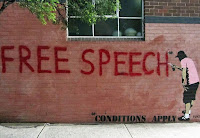
We've gone through a mighty change in the music business over the last 10 years, and it keeps on morphing and evolving every day. Since these changes are constant, many of the old school rules pertaining to success in the music business no longer apply.
Here's an excerpt from the latest edition of my
Music 4.0 book that outlines some of the new rules for success, as well as a few that may never change.
1. It’s all about scale. It’s not the sales, it’s the number of YouTube views (at least at the moment) you have. A hit that sells only 50,000 combined units (album and single) may have 50 million YouTube views. Once upon a time, a sales number like that would’ve been deemed a failure, today, it’s a success. Views don’t equal sales, and vice-versa.
2. There will be fewer digital distributors in the future. It’s an expensive business to get into and maintain, so in the near future there will be a shakeout that will leave far fewer digital competitors. Don’t be shocked when you wake up one day to find a few gone.
3. It’s all about what you can do for other people. Promoters, agents, and club owners are dying to book you if they know you’ll make them money. Record labels (especially the majors) are dying to sign you if you have have an audience they can sell to. Managers will want to sign you if you have a line around the block waiting to see you. If you can’t do any of the above, your chances of success decrease substantially.
4. Money often comes late. It may not seem like it, but success is slow. You grow your audience one fan at a time. The longer it takes, the more likely the longer the career you’ll have. An overnight sensation usually means you’ll also be forgotten overnight. This is one thing that hasn’t changed much through the years.
5. Major labels want radio hits. They want an easy sell, so unless you create music that can get on radio immediately, a major label won’t be interested. This is what they do and they do it well, so if that’s your goal, you must give them what they want.
6. You must create on a regular basis. Fans have a very short attention span and need to be fed with new material constantly in order to stay at the forefront of their minds. What should you create? Anything and everything, from new original tunes to cover tunes, to electric versions to acoustic versions, to remixes to outtakes, to behind the scenes videos to lyric videos, and more. You may create it all at once, but release it on a consistent basis so you always have some fresh content available.
7. YouTube is the new radio (but it may include Facebook soon). Nurture your following there and release on a consistent basis (see above). It’s where the people you want to reach are discovering new music.
8. Growing your audience organically is best. Don't expect your friends and family to spread the word, as they don’t count. If you can’t find an audience on your own merits, there’s something wrong with your music or your presentation. Find the problem, fix it, and try it again. The trick is finding that audience.
9. First and foremost, it all starts with the song. If you can’t write a great song that appeals to even a small audience, none of the other things in this book matter much.
Finally, remember that
making a living is the new success. Superstardom is more difficult to come by than ever, and the artistic middle class continues to shrink. Today, if you can make your living strictly from making music, you've accomplished a lot and have a lot to be proud of.
 I'm really pleased to have music attorney John Kellogg on the podcast this week. John represented acts like Levert and the O'Jays before becoming assistant chair of the Music Business and Management at Berklee College of Music.
I'm really pleased to have music attorney John Kellogg on the podcast this week. John represented acts like Levert and the O'Jays before becoming assistant chair of the Music Business and Management at Berklee College of Music.










